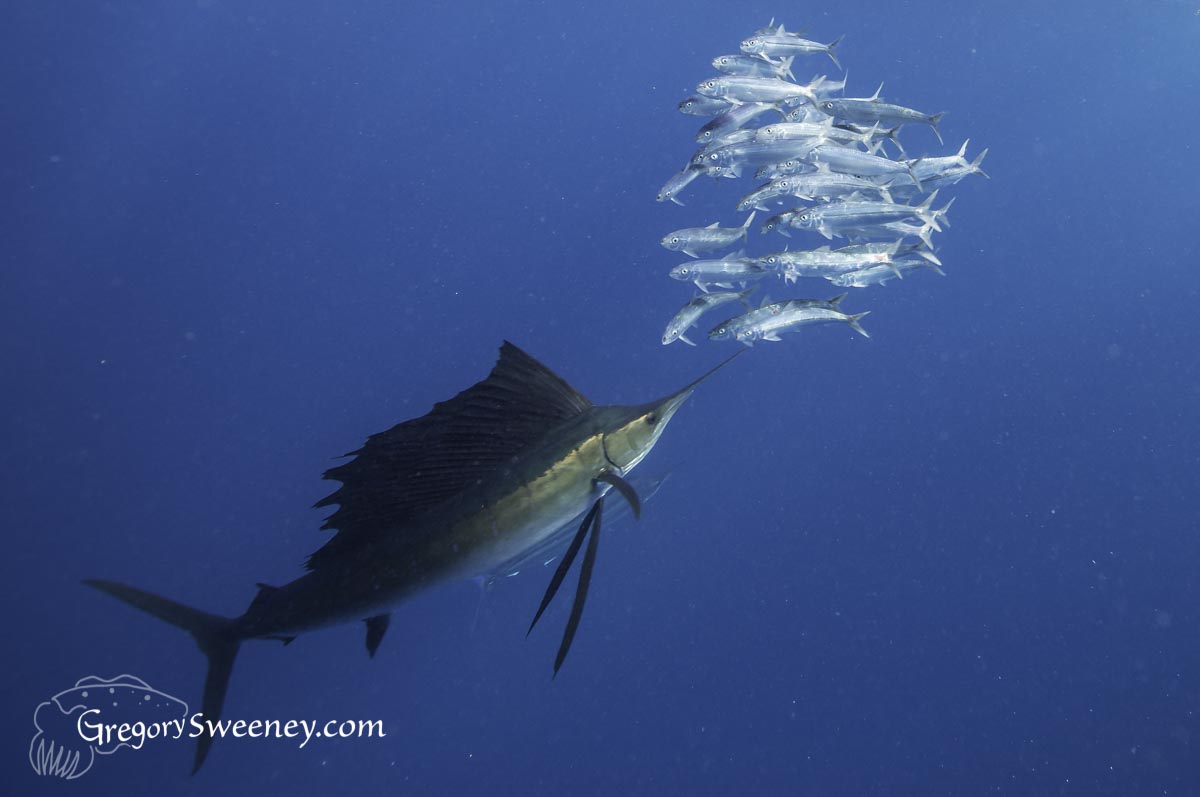
Sailfish and Sardines in Isla Mujeres, Mexico
Trip Report 2017
2017 Highlights: Sailfish along with bonus Whale Sharks, Dolphins, and Giant Manta Rays.
See my upcoming trips to snorkel the Sardine Run with Striped Marlins in Baja, Mexico Here
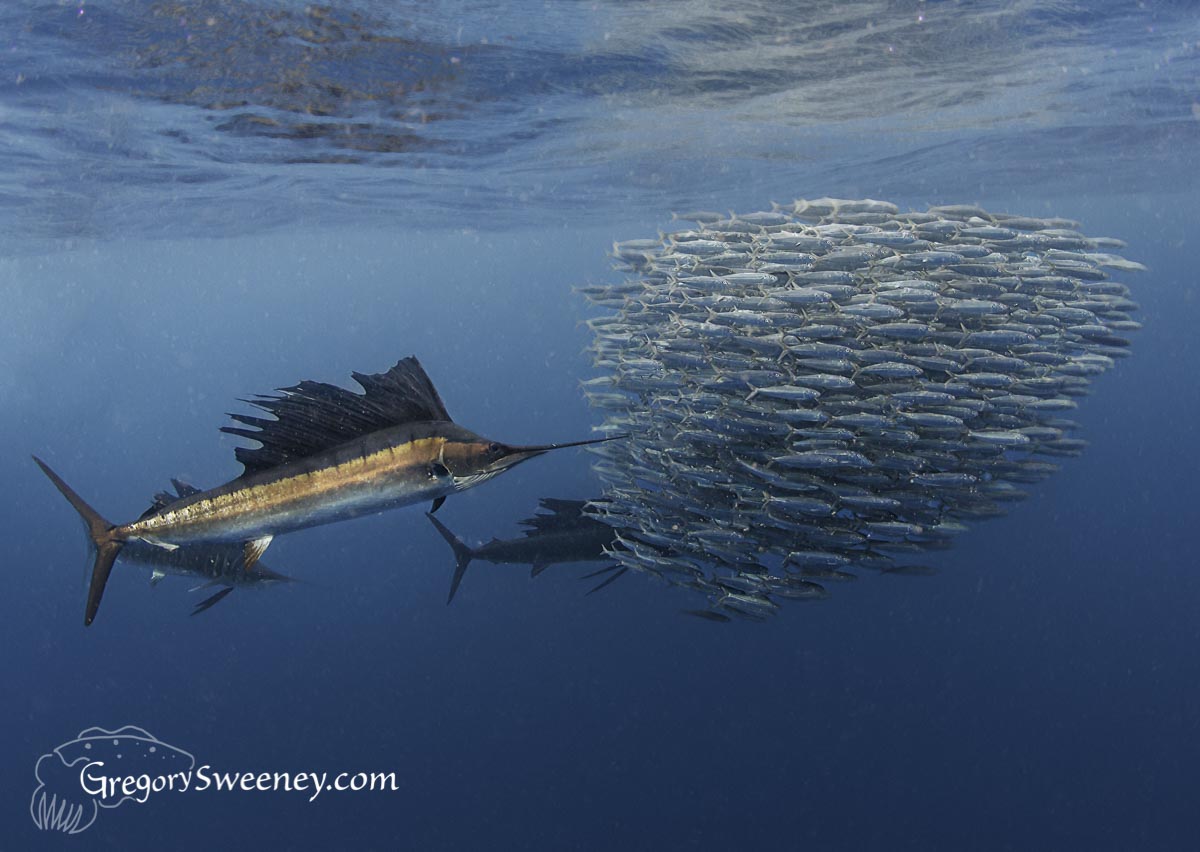
This year I lead 2 groups down to Isla Mujeres for the Sardine Run. Each group was on our charter boat for 5 full days on the water.
This year’s experience demonstrated to all of us how the sardines and sailfish are just two pieces of a larger ecosystem in the Gulf of Mexico. We encountered Whale Sharks, Giant Mantas, Sailfish , and Dolphins all feeding in food rich waters. The sardines are there to feed on the plankton and krill and they attract all the species that want to eat sardines such as the sailfish and dolphins. We were excited to see so many different species out in the open blue water.
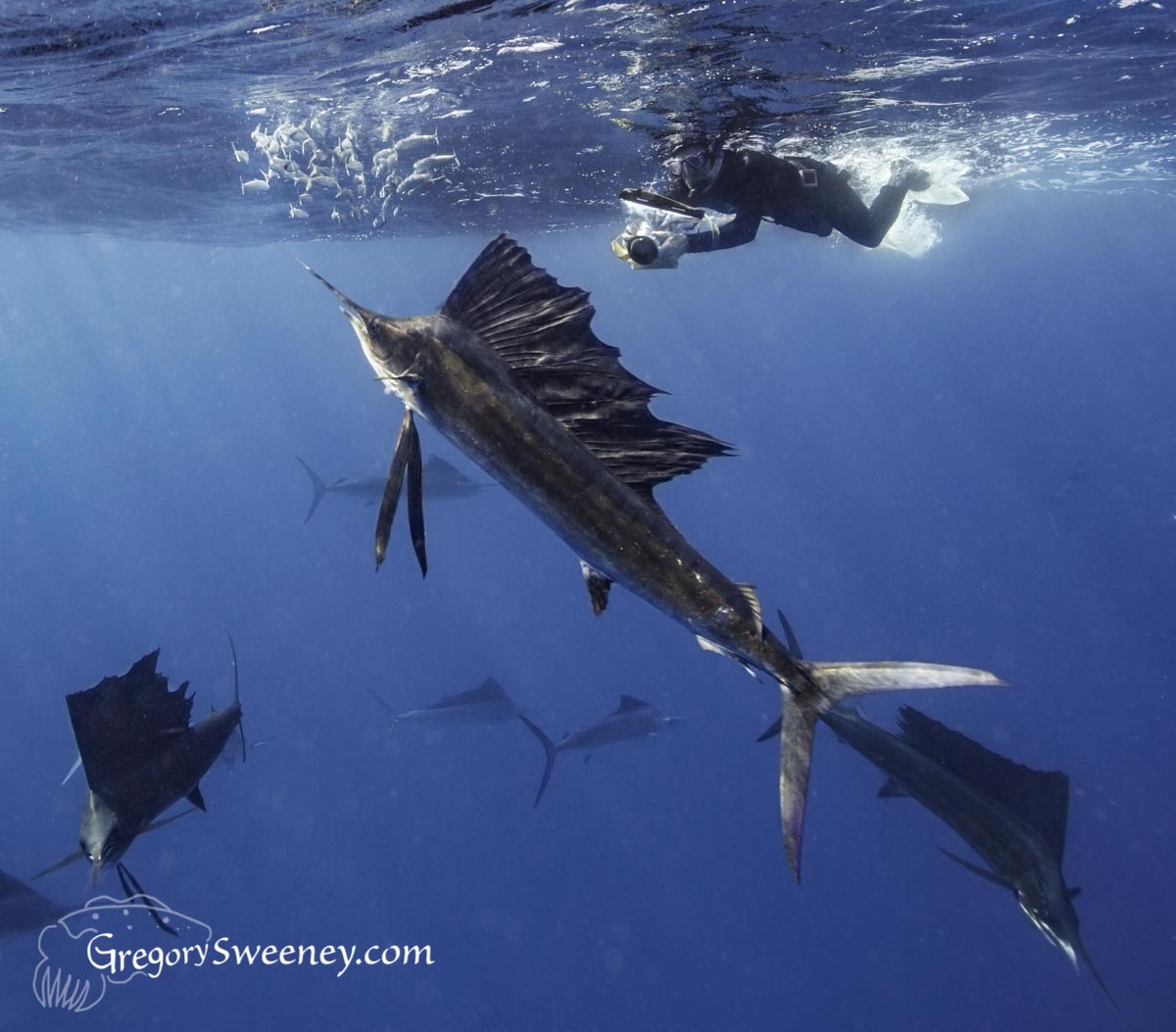
On our first day when we found the dolphins we thought we had found a pod feeding on sardines and perhaps the same bait school that some sailfish were working, but this was not the case. In fact the encounter was more unusual: this was a pod in the act of mating. The frenzied males were chasing the females and competing with each other to dominate her. They paid no notice to us as we swam along and photographed them.
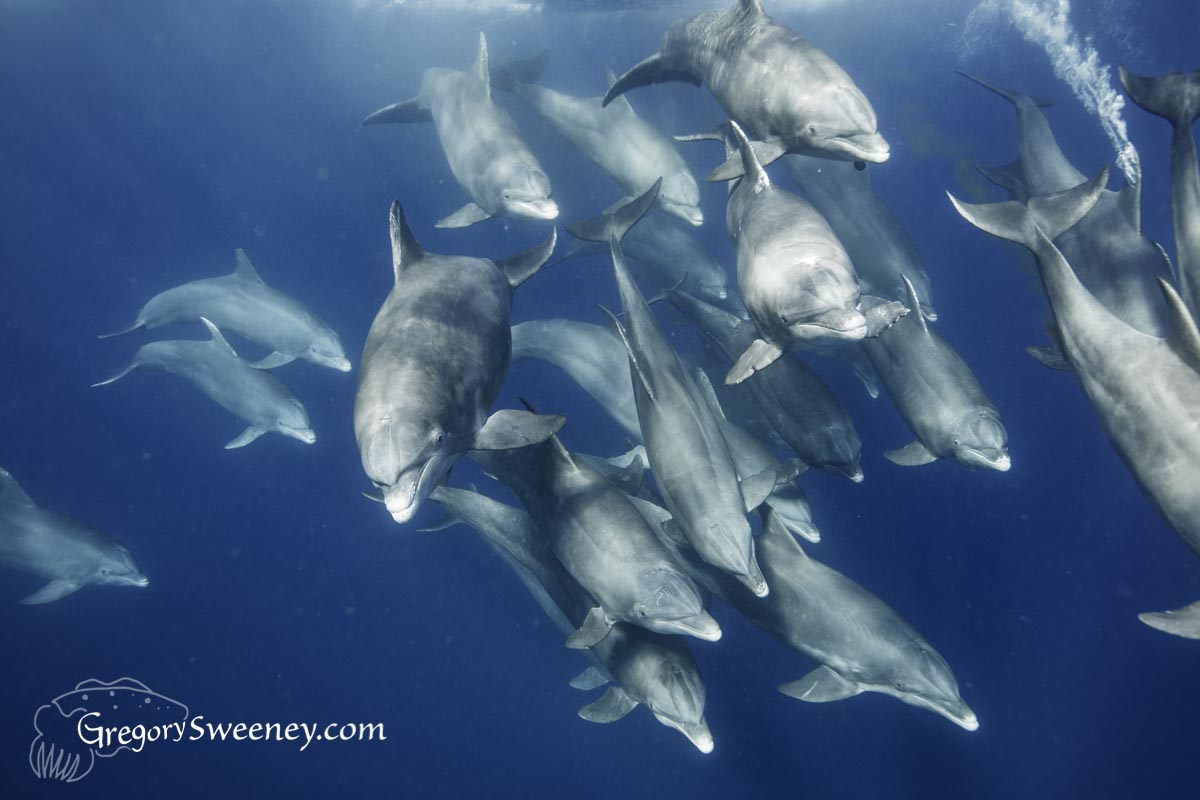
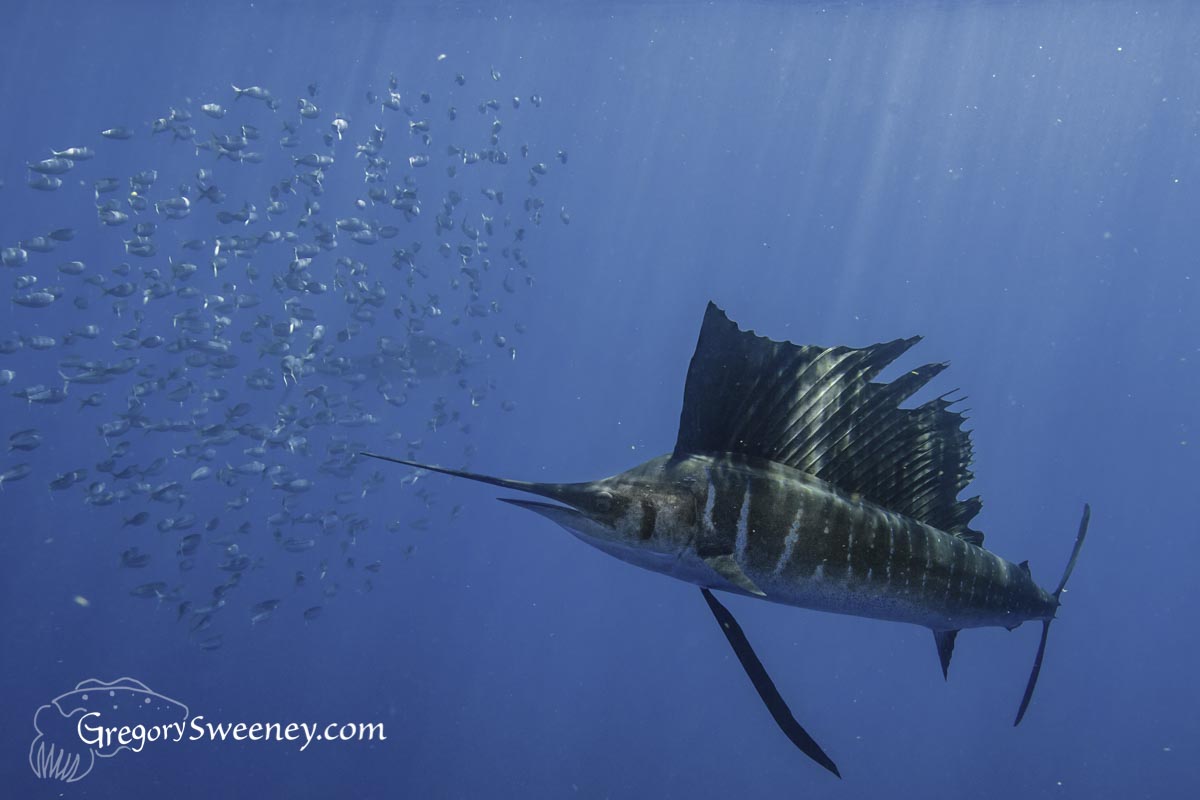
Over the next few days we found some sailfish. The captain and crew must look for frigate birds diving into the water. This is a sign that sardines or other food is near the surface. Spotting the surface disturbance of the sailfish or sardines would be impossible so the birds are the best method to find Sailfish. We are very lucky to work with experienced and patient captains for have loads of experience in these waters. They found us several chances to “drop” us in the water with sailfish.

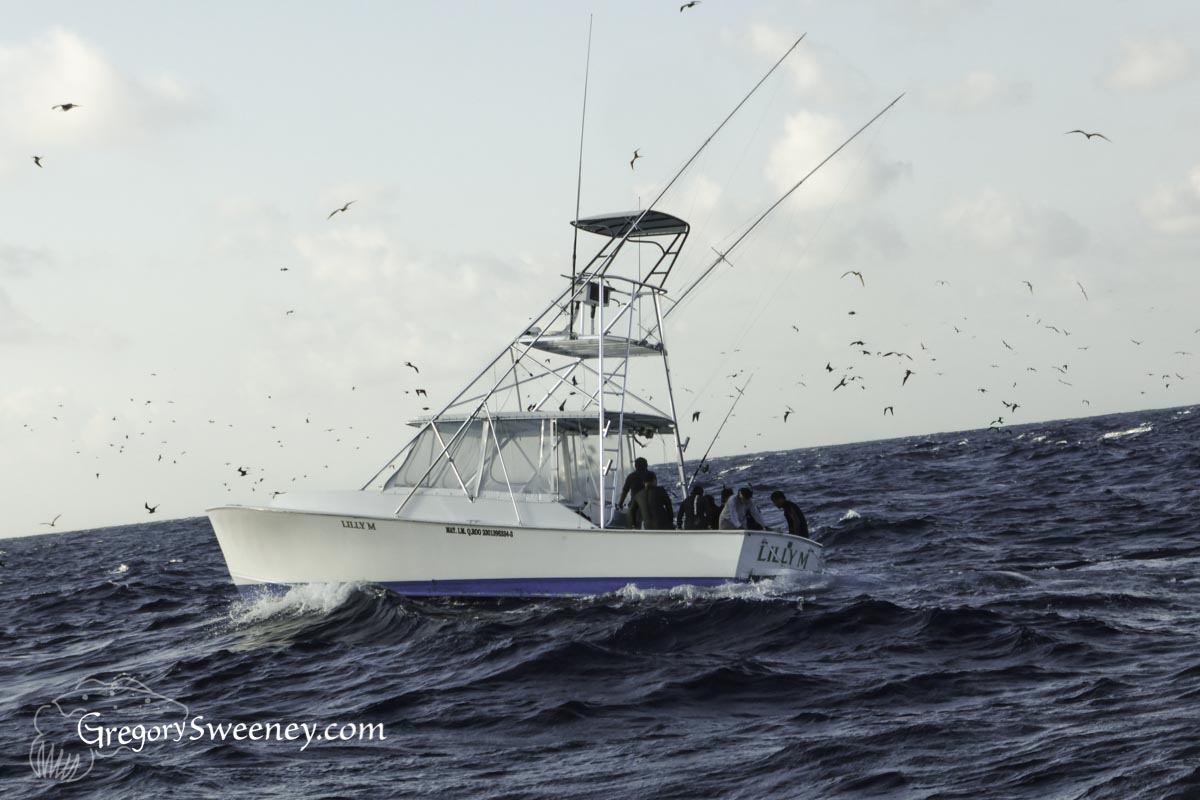
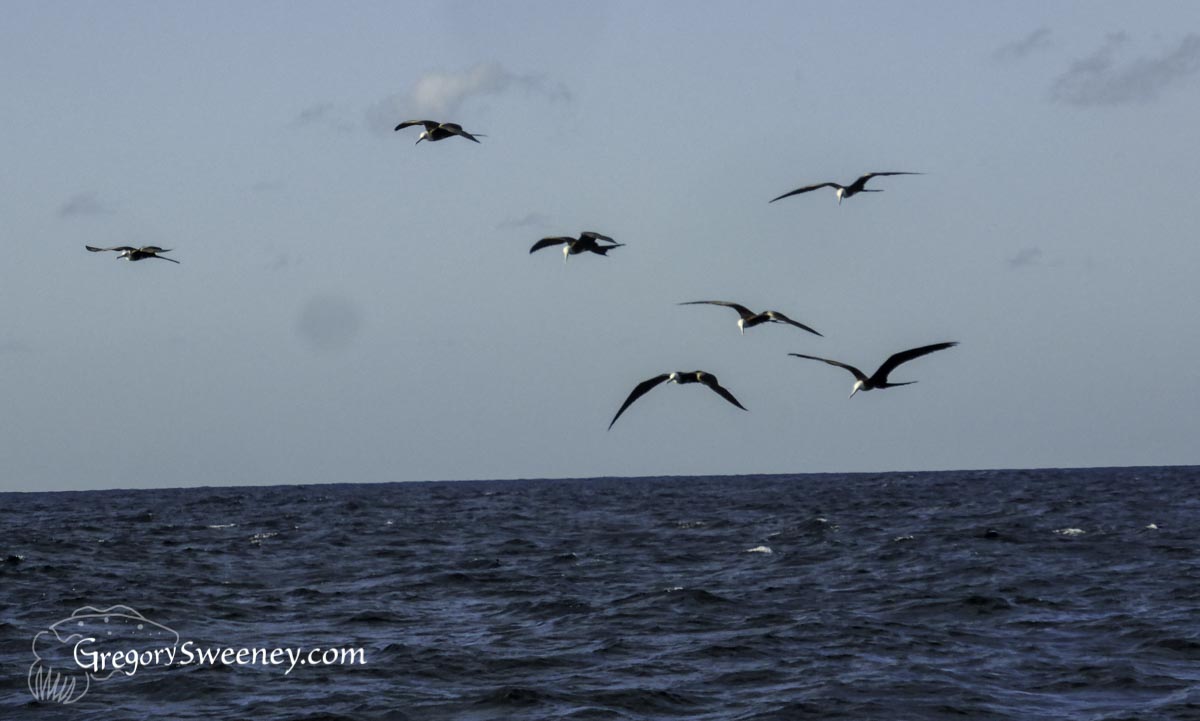

Once in the water it is some fast surface swimming to catch up to the moving baitball. I have found that it is easier to keep up with a group of sailfish who are managing a smaller baitball. The large schools of sardines move and break apart to rapidly.
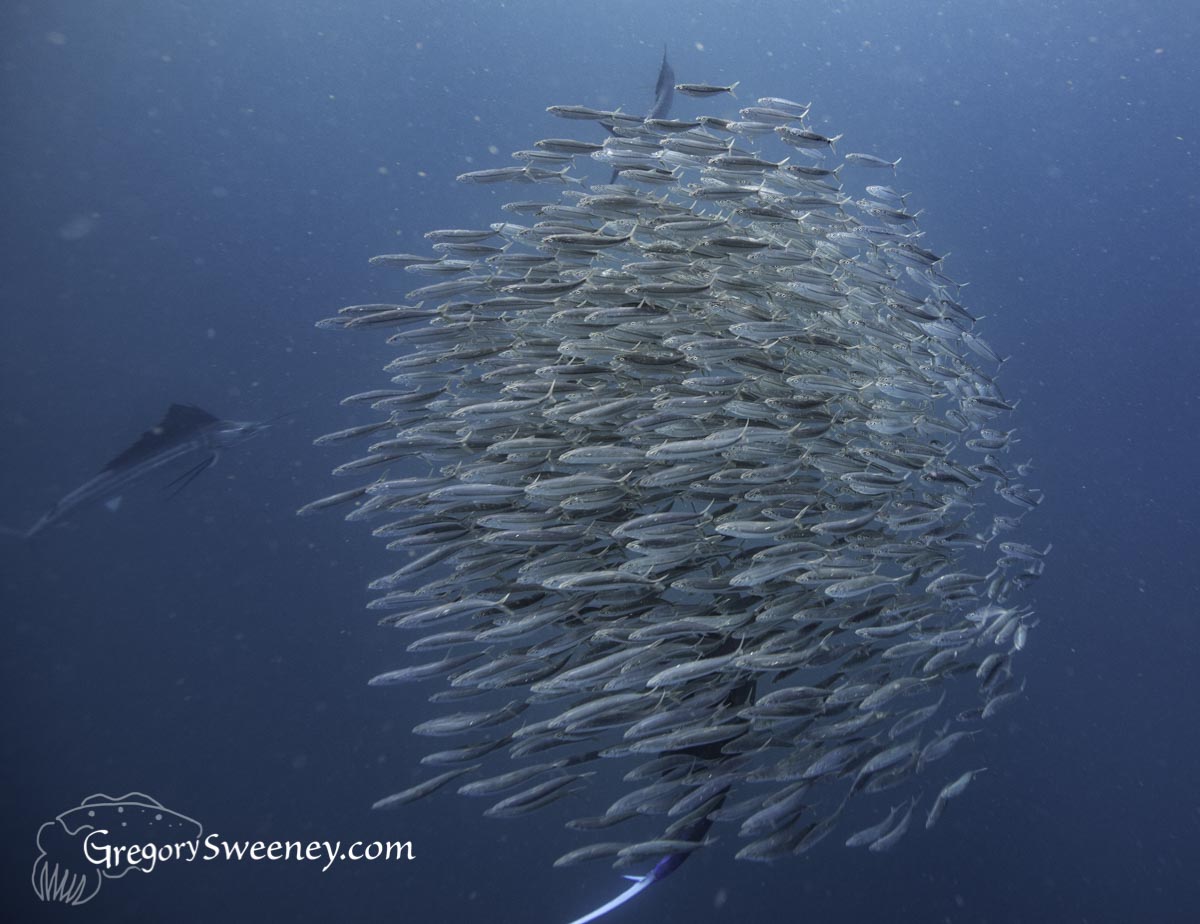
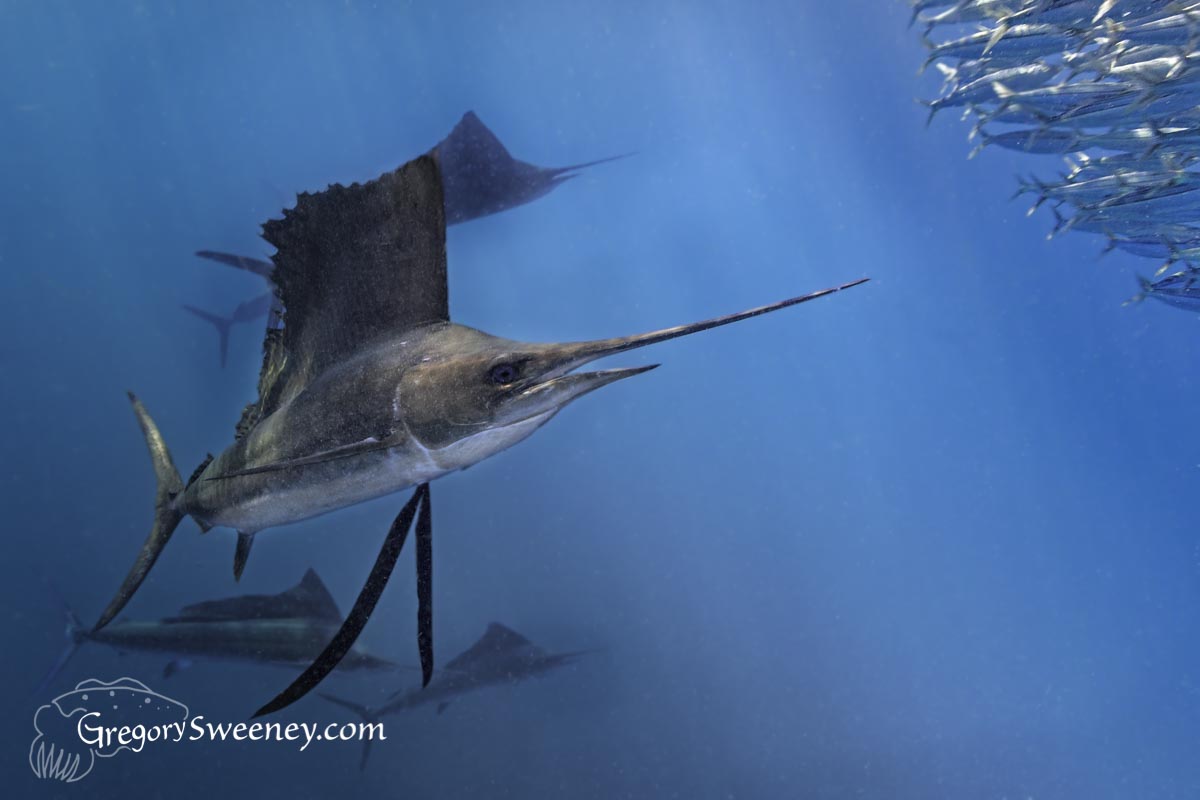
The sailfish work together to trap the sardines near the surface. The birds are diving down to grab fish at the same time as sailfish take turns running into the baitball and swatting at the fish to stun them. They then eat fish that are stunned and separated from the ball. Then a another makes a run. The sailfish flash colors and their “sail” fins as a means of communication. This action makes for great video.
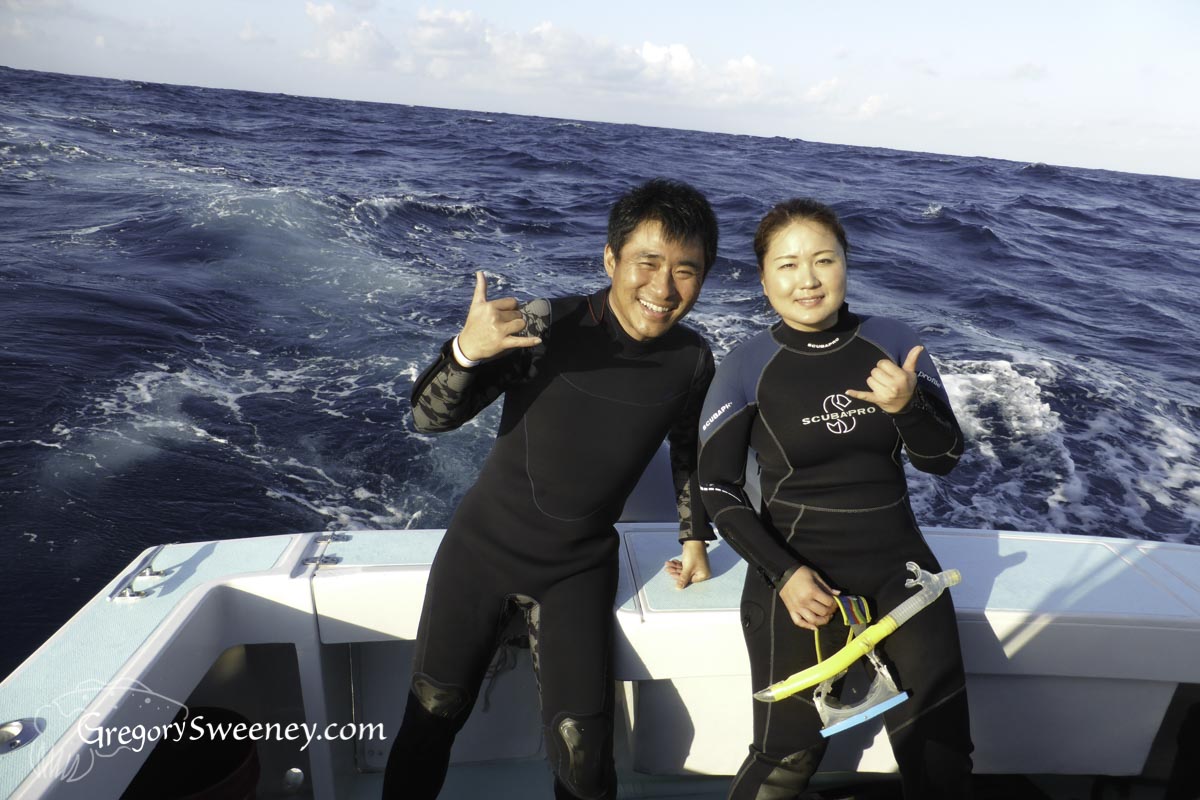
It can be a long day of searching for sailfish so on a less productive day we tried a different area and were excited to find feeding whale sharks and giant mantas. These two species are known to aggregate in these waters in the summer months, so it is unusual to find them in the winter. We had nice long encounters with the whale sharks. The giant mantas swam in loops while they fed. I was able to take many images of their individualized markings. I submit all my manta photos to the local Manta Trust . They confirmed that these are mantas that have been documented in the area during summer concluding that there is a resident population – very exciting!
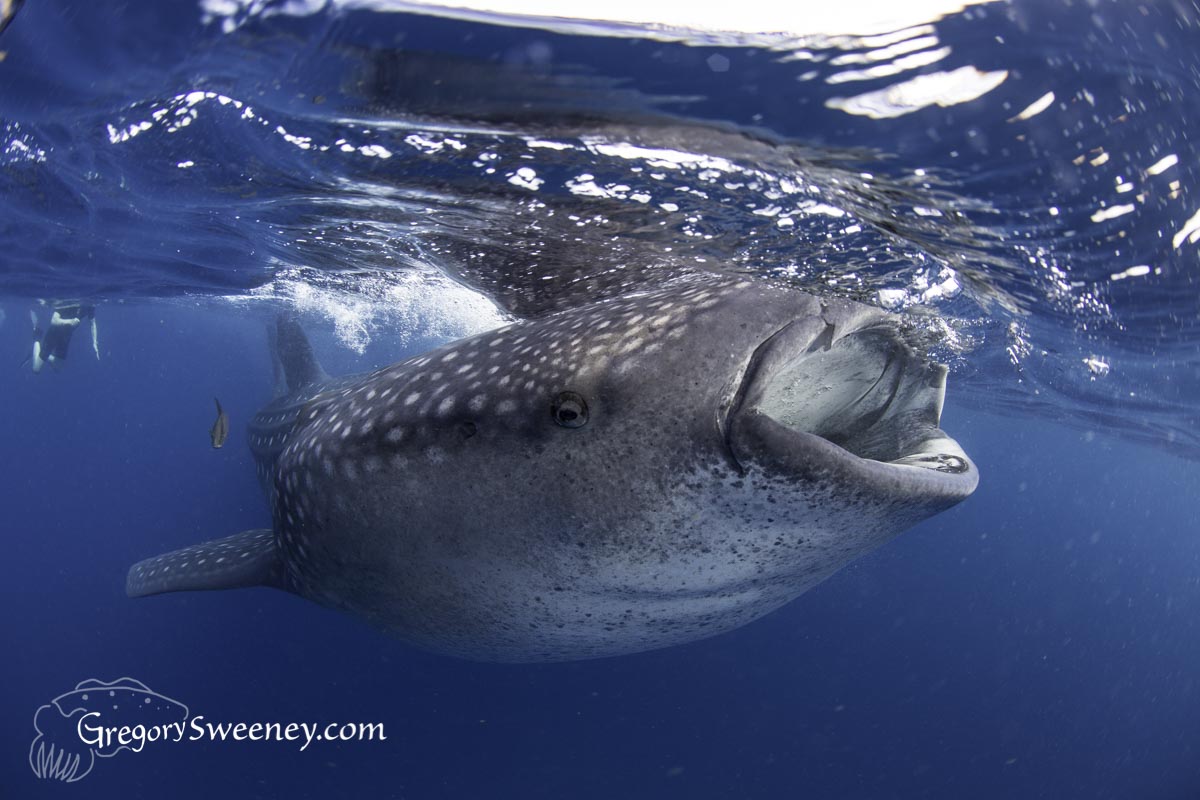
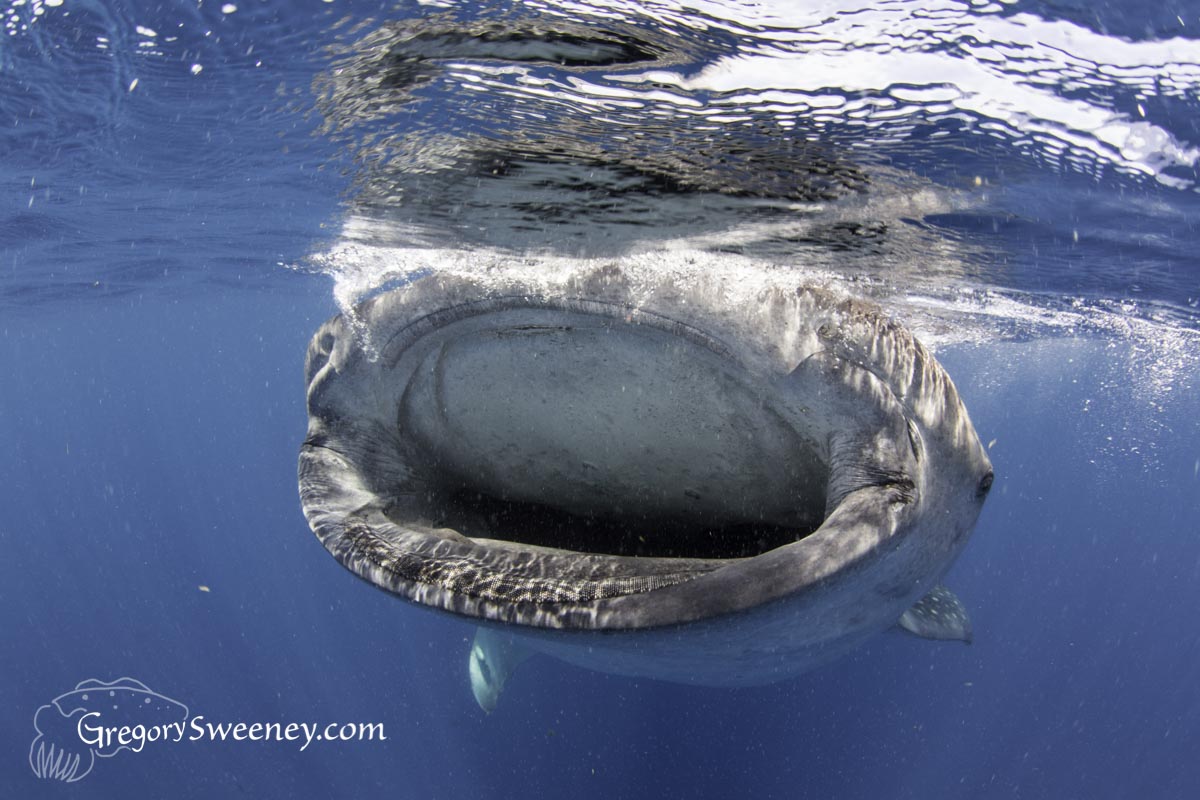
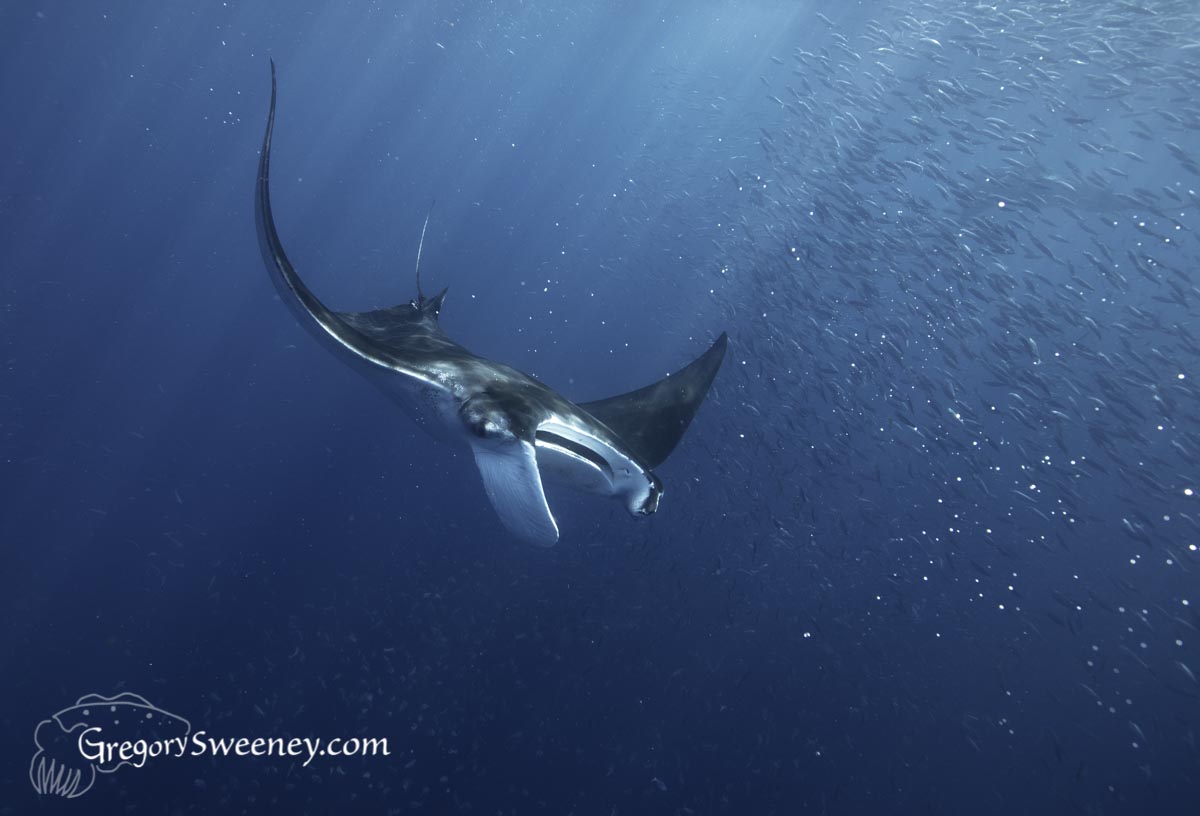

All of my guests had some great images and were pleased with the surprise species encounters and with the fact that we were able to find sailfish. I wish to thank all of them for making this an enjoyable trip for everyone. I hope to see them on a future trip.
Equipment
I was very conscious of baggage volume and weight when I made my equipment choices. My biggest decision was between my 16 – 35mm lens and the fish eye. I have used both before for sailfish. While the images with the fisheye were nice, one drawback was how close you need to be to get a good shot. Also if you get too close, your subject gets distorted at the edges of the image. I did not want to bring both or switch my equipment halfway through, so I opted for the 16 – 35mm.
I have a Nauticam housing with my best glass dome port. I also had a 2nd 5DMKIII as a backup and set for land images. No strobes as they would just slow down my swimming.
I have had my housing from my old Canon 5DII converted to fit my 2nd 5D III or a future RS. I like things to be interchangeable and to carry less equipment.
My initial setup was thus:
Canon 5D MKIV with a 16 – 35mm lens ISO 400 1/320 and f5.6
When conditions were cloudy or if the action was further below the surface, I stayed in the ISO 400 – 640 range, Shutter priority. For the sunny days and surface shots, I would dial things down.
The subjects are alway moving so a center weighted autofocus mode is important as is keeping the shutter fast enough to get crisp images.
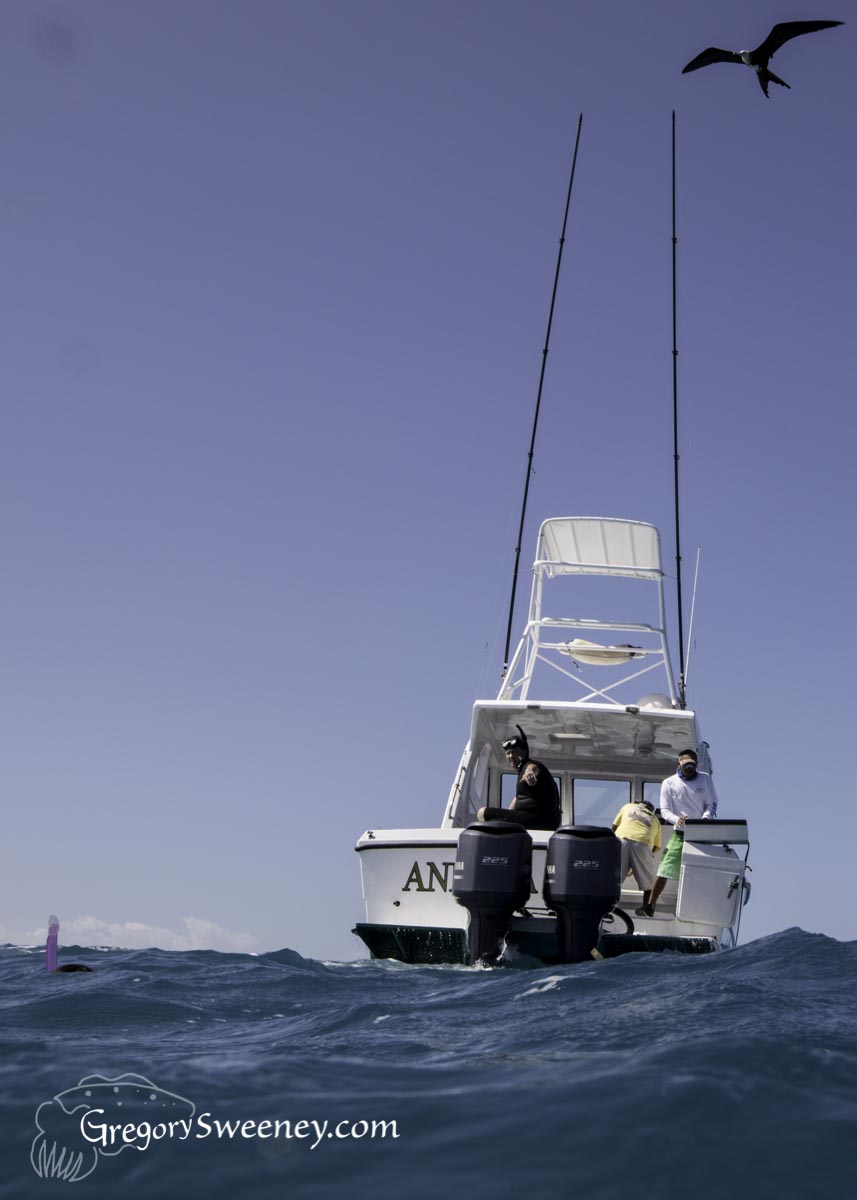
You can enjoy my sailfish images from past seasons in my online gallery
Online Gallery of Sailfish and Other Underwater Images
Dates for my Next Sailfish Trip
Staying on Isla Mujeres
As always, Isla Mujeres is a fun and comfortable home base for this adventure (and our whale shark trip in the summer). Our hotel is close to the dock and restaurants, while being a quiet place to rest.
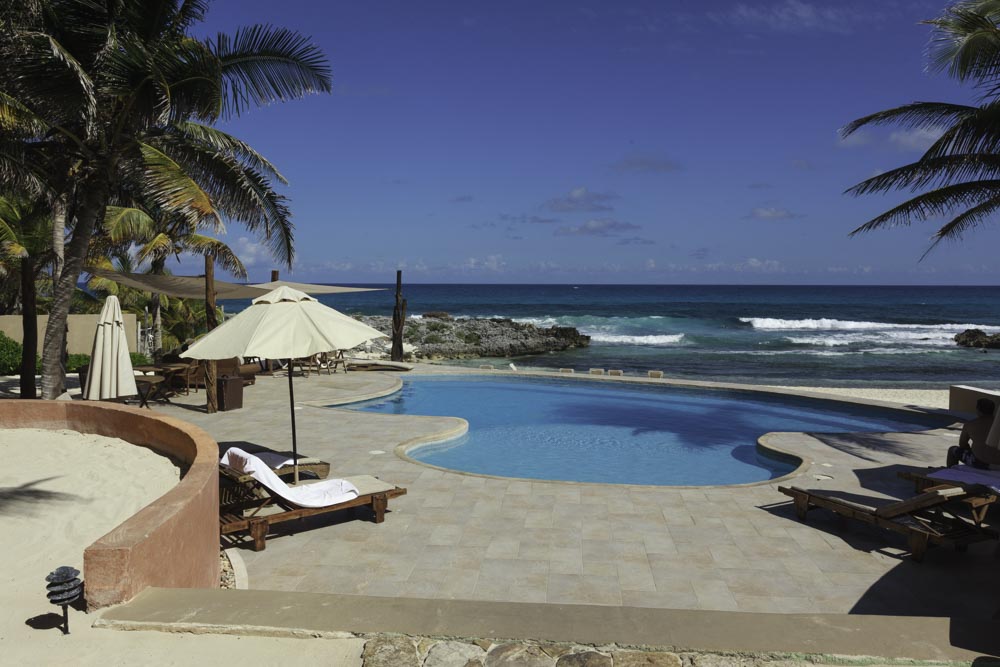
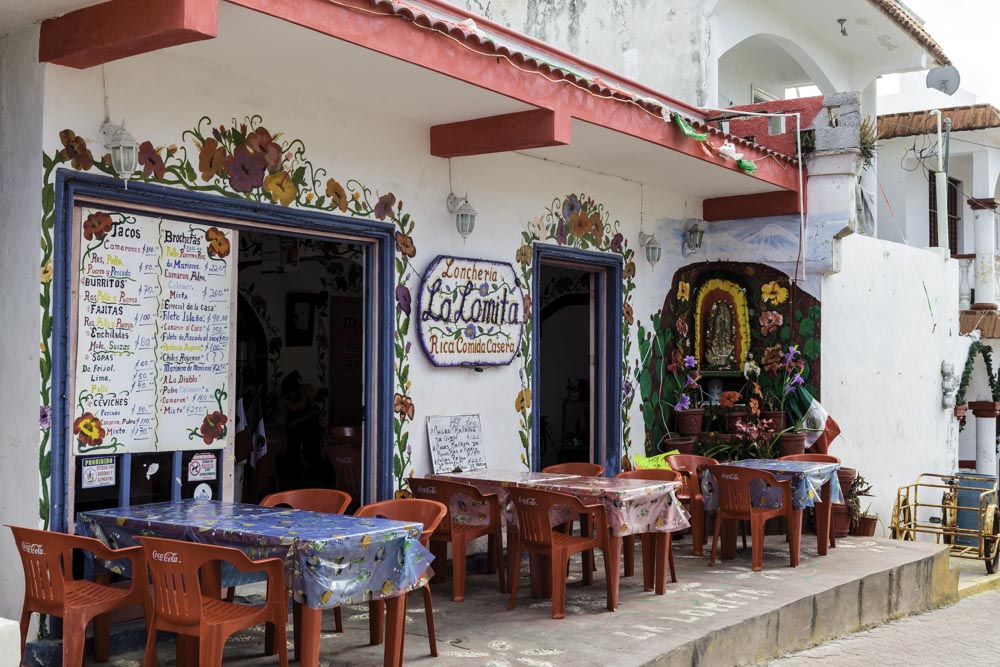
There is a nice pool which leads down to the beach. The rooms have AC and many have a balcony facing the water.
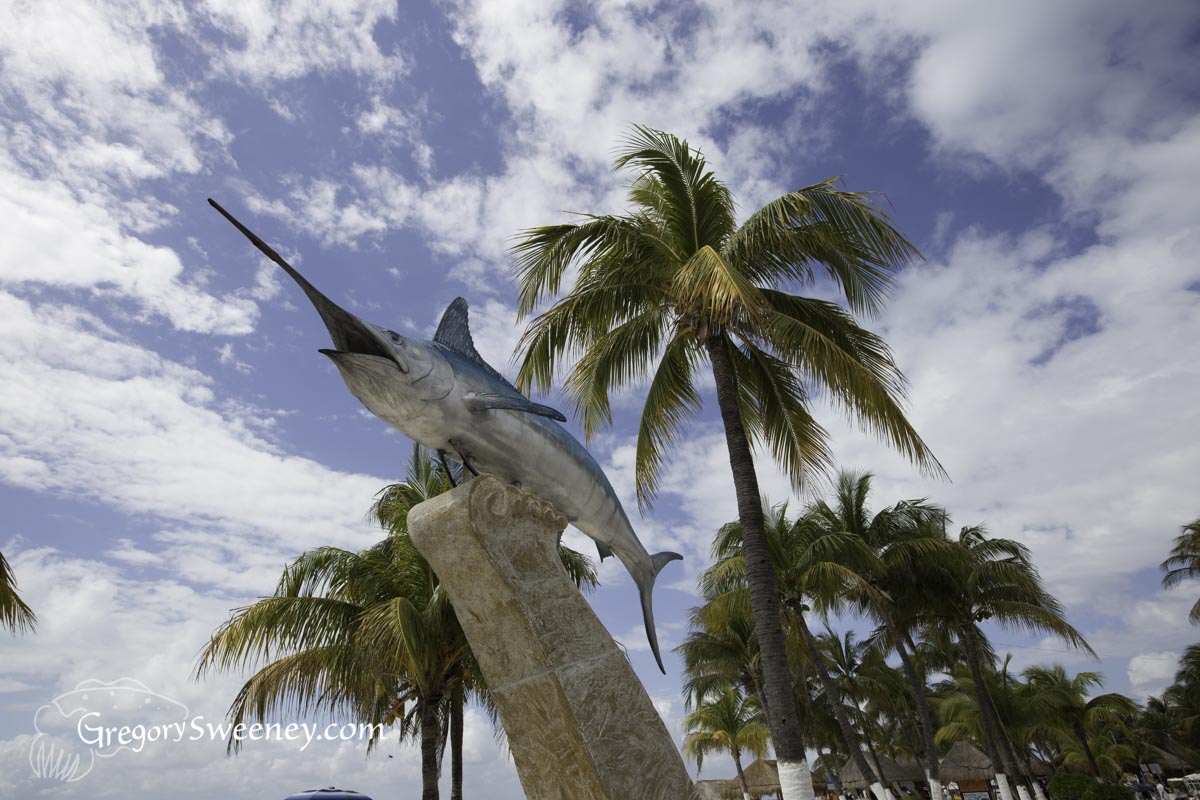

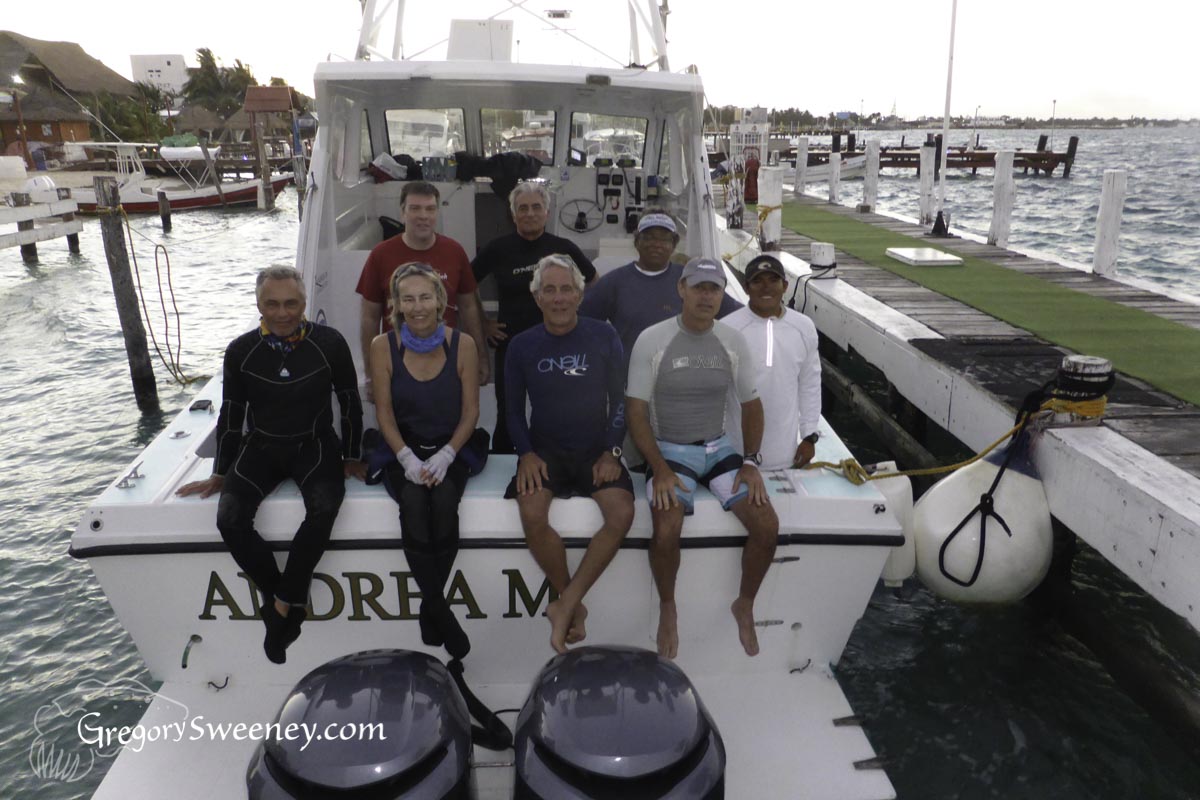
There are many good restaurants in town and food is very economical (average of $30 total for dinner) . We feasted on fresh fish, Mediterranean dishes, local tastes, and Cuban. I have been going so many years now that I have a list of the best places to please all my guests.
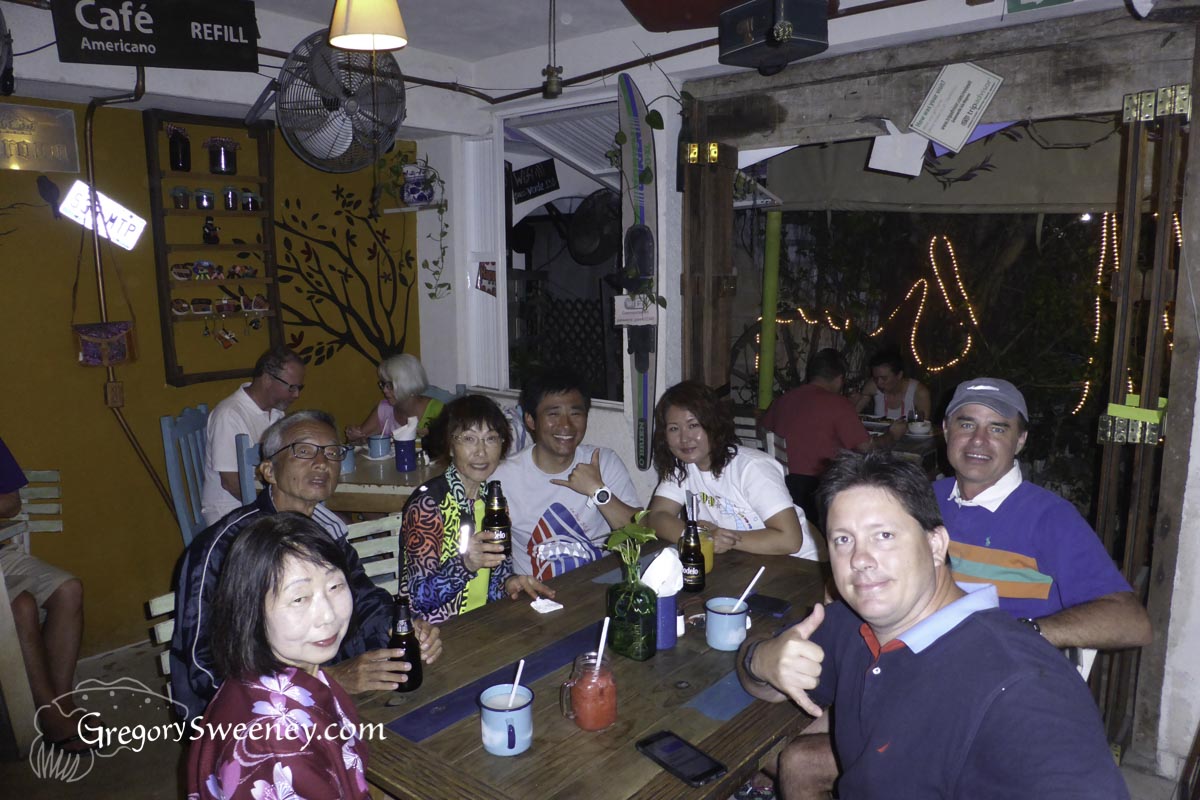
The shops are colorful and the people are friendly and we enjoyed just walking around town. The guests and I had happy hour around the pool with great conversations .
I hope to share another adventure with each of them and I am already looking forward to my next visit to Isla Mujeres.
